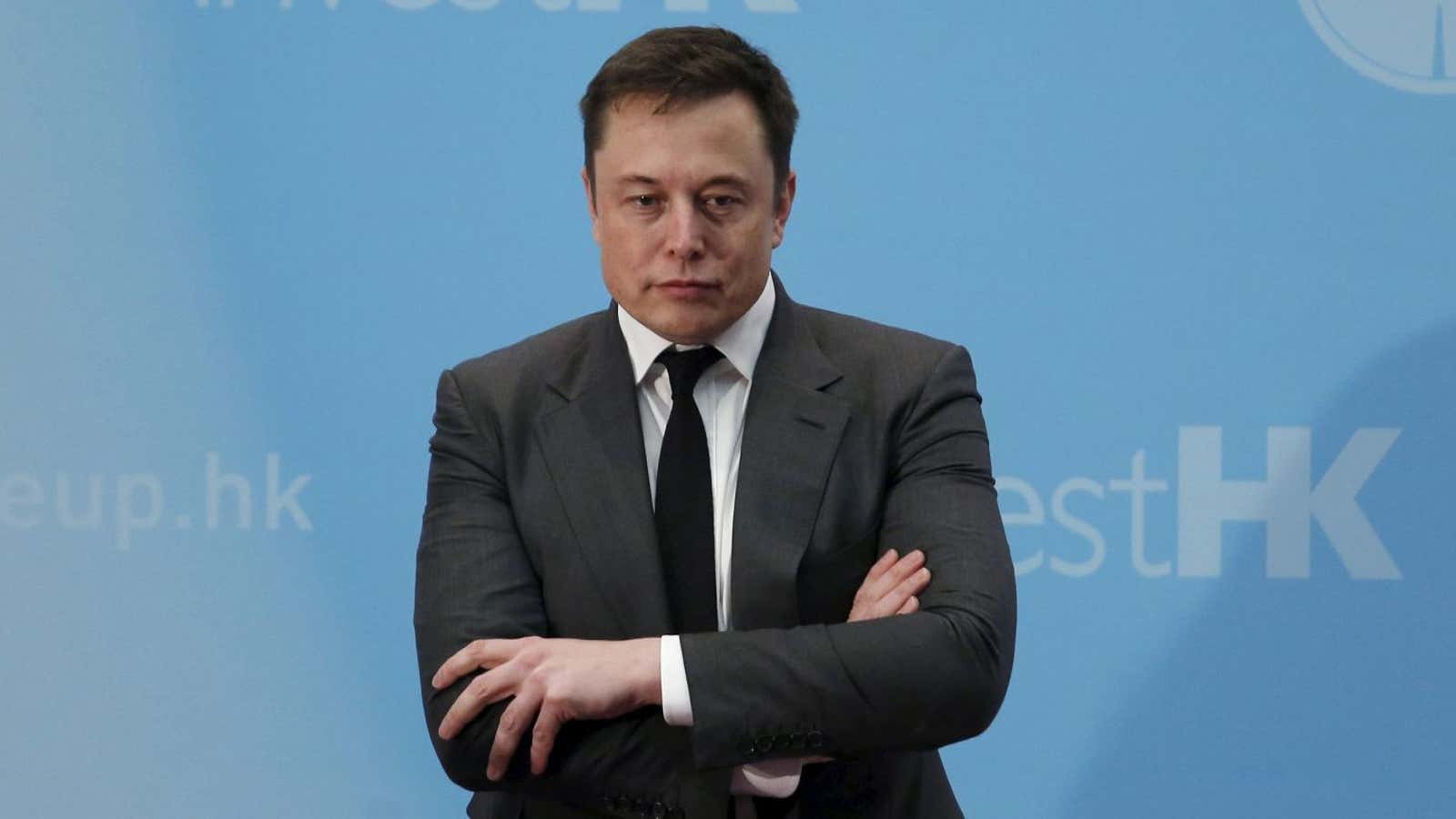What’s a good trade war without multiple fronts? Tesla CEO Elon Musk tweeted at US president Donald Trump about the unfairness of the rules governing the car trade between China and the US. Musk lamented that an American car sold in China pays a 25% import duty compared to just 2.5% for Chinese cars entering the US (both of these figures were reported by the New York Times). He also complained US automakers couldn’t own a majority share of their factories in China, while five Chinese electric vehicle companies held full ownership of their factories in the US.
The tweets come after Trump announced the United States would impose a 25% tariff on imported steel and 10% duties on aluminum, a move intended to target China but one which will probably come down hardest on Europe and Canada, as well as domestic US manufacturers. Trump also took aim at car tariffs in the European market on March 3: ”If the EU wants to further increase their already massive tariffs and barriers on US companies doing business there, we will simply apply a Tax on their Cars which freely pour into the US,” Trump tweeted. “They make it impossible for our cars (and more) to sell there. Big trade imbalance!”
The trade imbalance for vehicles between the US and China is stark. In January, the United States was importing $1.71 billion in finished cars and auto parts per month, while monthly exports to China were just $817 million. Tesla’s cars, like those of other US automakers, end up costing as much as 50% more in China than in the US due to tariffs.
Musk formerly served as a member of Trump’s Strategic and Policy Forum, but he left last June over Trump’s decision to dump the Paris Climate Accord.
